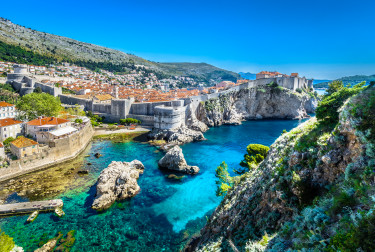
© UNESCO
Regional Trends | Europe and North America
Latest News and Stories
Key features on the Region
Europe and North America
- While the study area has a long tradition in the conservation of its rich cultural heritage, including through well-established museums and other cultural institutions, cultural policies have gradually expanded to encompass cultural and creative industries.
- Whilst there are generally strong cultural policies at the national level, there is increasing recognition of the importance of fostering sub-regional and regional cultural identities, in the face of challenges to the multilateral system.
- Digital technologies increasingly feature in cultural policies, including to protect artists’ rights, expand access to culture or broaden information sources to encourage sustainable cultural tourism.
- In a context of increasingly diverse societies, enhancing social inclusion through cultural policies, fostering respect for human rights and fundamental freedoms is a priority, and there have been recent innovative methods to reinforce data collection to address this issue.
- Whilst overall, countries within the study area have aligned pubic policies to the 2030 Agenda, notably through a growing number of Voluntary National Reviews (VNRs), there is further scope to integrate culture into cross-cutting public policies, particularly in urban regeneration.
Eastern Europe
- The sub-region places great emphasis on intercultural dialogue, due to its history at the heart of the silk roads where different cultures blended.
- Cultural policies in the region have a strong focus on heritage to foster strong national cultural identities, and the sub-region has strong systems in place for the transmission, including through digital platforms.
- Sub-regional cooperation in the field of culture is growing with heritage and youth projects constituting important areas of cooperation.
- Strong arts education policies that mainly focus on skills development and the transmission of tradition, more than creativity and innovation, are integrated into school curricula.
- Whilst all countries have adopted national plans for attaining the Goals of the 2030 Agenda, culture often remains a specialised policy domain despite its potential for encouraging tourism and designing more inclusive urban policies.

News from the Field Offices
Member States of the Region
Albania - Andorra - Armenia - Austria - Azerbaijan - Belarus - Belgium - Bosnia and Herzegovina - Bulgaria - Canada - Croatia - Cyprus - Czechia - Denmark - Estonia - Faroes - Finland - France - Georgia - Germany - Greece - Hungary - Iceland - Ireland – Italy - Latvia - Lithuania - Luxembourg - Malta - Monaco - Montenegro - Netherlands - North Macedonia - Norway - Poland - Portugal - Republic of Moldova - Romania - San Marino - Serbia - Slovakia - Slovenia - Spain - Sweden - Switzerland - Turkey - United Kingdom of Great Britain and Northern Ireland - Ukraine.




